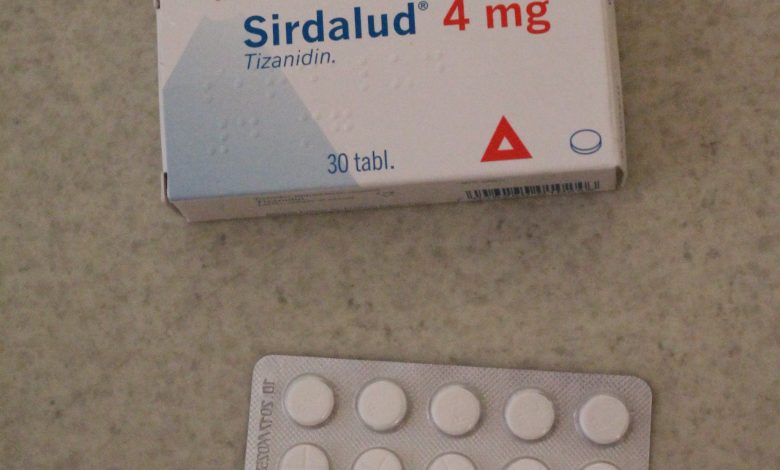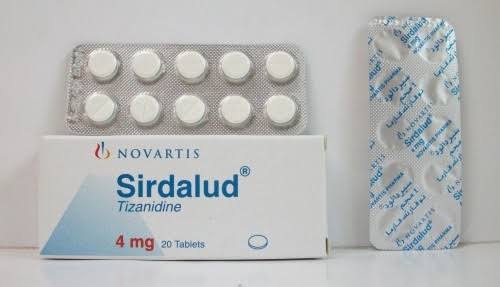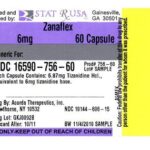Can I Take 2 Tizanidine 4mg At Once?

What is tizanidine?
Tizanidine is a prescription drug that comes as an oral tablet and an oral capsule. Tizanidine oral tablet is available as a brand-name drug Zanaflex. It’s also available as a generic drug. Generic drugs usually cost less than the brand-name version. In some cases, they may not be available in all strengths or forms as the brand-name drug.
Tizanidine oral tablet is used to manage muscle spasms. Symptoms can include muscle tightness, pain, or stiffness. This drug is often used for people with multiple sclerosis, spinal cord injury, or muscle spasticity. Tizanidine is also used off-label for managing patients suffering from chronic neck and back pain, and chronic migraines.
Studies indicate that tizanidine has direct effects on the induction of sleep, and promotes muscular relaxation bringing about good sleep. Tizanidine is also useful for the treatment of refractory sleep disturbance in spastic quadriplegic patients.
How it works
Tizanidine belongs to a class of drugs called alpha-2-adrenergic agonists. A class of drugs is a group of medications that work in a similar way. These drugs are often used to treat similar conditions. Tizanidine reduces the activity of nerves in the spinal cord that control muscles. This helps to reduce muscle spasms.
How strong is tizanidine 4mg?
Tizanidine 4mg is a very strong medication. In fact, tizanidine is slightly stronger than cyclobenzaprine at their respective doses. Tizanidine is also more potent than tramadol in the management of acute pain according to studies.
How is tizanidine 4mg taken?
Tizanidine comes as a tablet and a capsule to take by mouth. It is usually taken consistently either always with or always without food two or three times a day. Follow the directions on your prescription label carefully, and ask your doctor or pharmacist to explain any part you do not understand.
Tizanidine dosage for adults over the age of 18, is 2 or 4 mg due to the possible dose-related side effects.
A doctor can then increase the dose in increments of 2–4 mg every 1–4 days to achieve the optimal effect possible with a tolerable amount of side effects. People can repeat the dose at 6–8 hour intervals, but they should never exceed three doses, or a total of 36 mg, within 24 hours.
If you miss a dose, Take your dose as soon as you remember. But if you remember just a few hours before your next scheduled dose, take only one dose. Never try to catch up by taking two doses at once. This could result in dangerous side effects.
Can I take 2 tizanidine 4mg at once a day?
No, taking 2 tizanidine 4mg at once will result in an overdose leading to dangerous levels of tizanidine in your body. Symptoms of a tizanidine 4mg overdose include:
- Difficult or troubled breathing
- Blurred vision
- Change in consciousness
- Chest pain or discomfort
- Confusion
- Decreased awareness or responsiveness
- Dizziness, faintness, or lightheadedness when getting up from a lying position
- Irregular, fast or slow, or shallow breathing
- Lightheadedness, dizziness, or fainting
- Pale or blue lips, fingernails, or skin
- Severe sleepiness
- Sleepiness or unusual drowsiness
- Slow or irregular heartbeat
- Sweating
- Unusual tiredness or weakness
- Coma
If you think you’ve taken too much tizanidine 4 mg, call your doctor or seek guidance from the American Association of Poison Control Centers at 800-222-1222 or through their online tool. But if your symptoms are severe, call 911 or go to the nearest emergency room right away.

Tizanidine Side Effects
The most common side effects include:
• dry mouth
• dizziness
• urinary tract infections
• constipation
• sleepiness and lethargy
• weakness and lack of energy
• vomiting
• speech disorders
• urinary frequency
• blurred vision
• nervousness
• flu syndrome, which is a cluster of symptoms similar to those of the flu
• abnormal liver function test results
• inflammation of the mucous membranes of the nose
• sore throat
• involuntary movements
Possible risks associated with tizanidine include:
- Liver injury: Clinical studies have shown that about 5% of people who take tizanidine have elevations of liver enzymes up to more than three times the upper limit of normal. In most cases, the enzymes return to normal upon discontinuing the drug. However, there have been occasional reports of symptoms of liver damage and rare reports of deaths from this effect.
- Low blood pressure: Doctors should watch for signs and symptoms of this condition, such as lightheadedness, dizziness, a slow heartbeat, and fainting.
- Sedation: Clinical studies suggest that 48% of individuals taking tizanidine experience sedation, or drowsiness. In 10% of cases, sedation is likely to be severe.
- Hallucinations: In two clinical studies, 3% of people who took tizanidine experienced hallucinations or delusions. Hallucinations involve seeing, hearing, tasting, smelling, or feeling something that is not present. A delusion is a belief in something that is not true.
Drugs that increase the risk of side effects from tizanidine
Taking tizanidine with certain medications raises your risk for side effects from tizanidine. This is because the amount of tizanidine in your body is increased. Avoid using these drugs with tizanidine if possible. Examples of these drugs include:
Acyclovir. Increased side effects can include decreased blood pressure, decreased heart rate, or extreme drowsiness.
Antacids such as cimetidine or famotidine. Increased side effects can include decreased blood pressure, decreased heart rate, or extreme drowsiness.
Certain antibiotics are called fluoroquinolones (other than ciprofloxacin), such as levofloxacin, moxifloxacin, or gemifloxacin. Increased side effects can include decreased blood pressure, decreased heart rate, or extreme drowsiness.
Certain heart rhythm drugs such as amiodarone, mexiletine, propafenone, or verapamil. Increased side effects can include decreased blood pressure, decreased heart rate, or extreme drowsiness.
Oral contraceptives. Increased side effects can include decreased blood pressure, decreased heart rate, or extreme drowsiness.
Ticlopidine. Increased side effects can include decreased blood pressure, decreased heart rate, or extreme drowsiness.
Zileuton. Increased side effects can include decreased blood pressure, decreased heart rate, or extreme drowsiness.
Using tizanidine with the following drugs can cause excessive sedation (drowsiness):
- benzodiazepines such as alprazolam, lorazepam, or diazepam.
- certain antidepressants such as amitriptyline, nortriptyline, or protriptyline.
- opioids such as morphine, methadone, or oxycodone.





